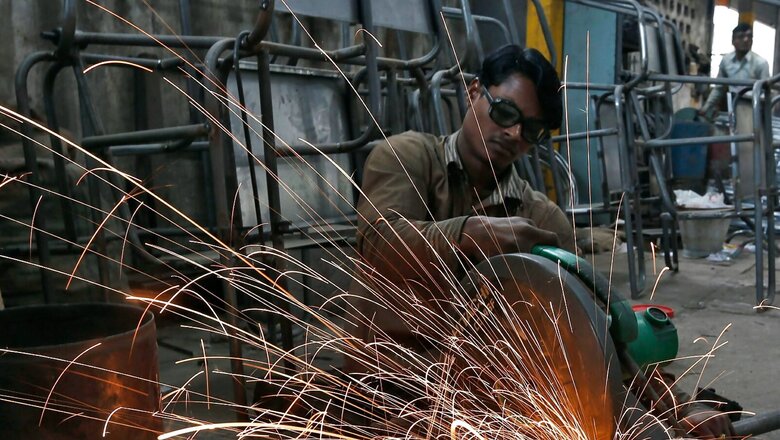
views
As the wholesale inflation has touched a nine-month high of 15 per cent in April, MSMEs (micro, small and medium enterprises) from food processing, textile, engineering and plastics sectors are struggling to manage their margins amid rising input prices. The operating cost of small and medium family enterprises has risen nearly 20 per cent on account of a sharp rise in raw material prices, according to a report.
“Cost of materials has risen 35 per cent in FY 2021-22 from the previous year for 96 manufacturing companies listed on BSE, while their sales expanded 30 per cent (according to a study by MVIRDC). On an average, these 96 companies spend 50 per cent of their total expenditure on raw materials and intermediate goods,” according to a White Paper on ‘Impact of Inflation on Trade & Industry’ by the World Trade Centre, Mumbai.
The share of material cost in the overall expenses of these 96 companies grew cumulatively from 50 per cent in FY 2020-21 to 54 per cent in FY 2021-22. Among these 96 companies, the cost of materials consumed has grown faster in FY 2021-22 from the previous year than the corresponding growth in annual sales for 68 companies, it said.
Micro, small and medium enterprises, which are the backbone of India’s manufacturing sector, is suffering from eroding profit margin, working capital strain and indebtedness due to rising cost of steel, aluminum, miscellaneous metals, plastics and other raw materials. MSMEs contribute more than 30 per cent to the country’s GDP, support 120 million jobs and contribute 49 per cent to exports, it added.
According to the White Paper, while the rise in the raw material cost has affected the operation of manufacturing enterprises, the increase in wages and fuel prices have adversely impacted service sector units. As a result of increase in petrol and diesel prices, MSMEs are facing rise in logistics cost and cost of ferrying their workers to factory units.
Madhavan Kutty, senior economist at Aditya Birla Group, said: “Banks and NBFCs have adequate capital above the RBI prescribed limit and their NPAs are also at a manageable level. They should use their better financial position to support MSME borrowers by increasing flow of credit to MSMEs. Public sector banks should introduce innovative derivate products to hedge interest rate risks and thereby support MSME borrowers.”
The Paper said some large companies have already raised prices of their products to maintain their profit margin, while some companies, especially in the MSME sector are unable to pass on the increase in raw material prices as it might affect demand and sales for their products.
“MSME vendors that are supplying intermediate goods to corporate buyers are unable to hike prices of their products because of the absence of such price escalation clause in their orders,” it added.
Wholesale price-based inflation spiked to a record high of 15.08 per cent in April on rising prices across segments from food to commodities. The WPI-based inflation was 14.55 per cent in March and 10.74 per cent in April last year.
Read all the Latest Business News here
















Comments
0 comment